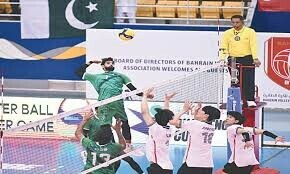EVER since the infamous spot-fixing scandal plunged country’s cricket reputation to its lowest depths in 2010, a Test at Lord’s involving Pakistan was always likely to be associated with controversy, despair and disgrace. On July 17, 2016 however, when Mohammad Amir penetrated Jake Ball’s defences in the England second innings, Pakistan rewrote history by achieving their first Test victory at Lord’s in 20 years. As Amir spread his arms in celebration and was mobbed by his team-mates, there was one word on everyone’s lips: redemption.
It seemed appropriate that Amir took the wicket that sparked so much joy, just six years after being guilty of causing controversy and bringing his personal, and the team’s reputation into disrepute. Seeing the team celebrate with sheer, unbridled joy as they paid tribute to the Pakistan Army unit that trained them, was a moment that will remain etched in the memory of those lucky enough to be present here at Lord’s. It was as enjoyable as it was heart-warming.
A huge amount of credit for this turnaround must be given to Misbah-ul-Haq, who inherited an inharmonious team in the aftermath of the spot-fixing saga. Since then, he has been the bastion of Pakistan cricket in the wake of the spot-fixing scandal, and it was fitting that he played a match-winning role in the team’s first game back at Lord’s.
He has led from the front during these last 6 years, as he did in this match, with a spectacular century and an even more spectacular celebration, becoming the oldest player to score a Test hundred at Lord’s in the modern era. In a match with only three half-centuries, his innings was vital to Pakistan’s success.
A measure of his importance to the team is that his average in a winning Pakistan Test team is 70.48 (his average of 56.68 runs in 43 Tests as captain is remarkable as well!). The team, and his fans, will miss him desperately when he hangs up his boots.
Misbah’s captaincy has regularly been a topic of debate. Despite Pakistan’s eventual success, the pockets of Pakistani fans present at Lord’s were frustrated that he didn’t move the slip fielders closer to the batsmen even whena series of chances dropped just short of them. Yes, it would have marginally reduced their reaction time if a ball was edged to them, but it would have been an attacking move that could have resulted in wickets during the frustrating post-lunch session on day four.
To his credit though, Misbah persisted with his bowlers even when England looked comfortable and, in time, they justified his faith.
It would be easy to assume that the pitch aided spin, based on Yasir Shah’s figures of 10-141. But this was certainly not the case. Toiling away on an unresponsive pitch, his unerring accuracy (78% of his deliveries were dot balls) allowed the team to build pressure on the English batsmen across long spells.
Yasir’s most endearing quality, however, is that whether he has just been hit for six or bowled a dot ball, he looks down the wicket with the same grin on his face, making him a firm crowd favourite. On a tour where Pakistan is keen to make a good impression, we are lucky to have him as an ambassador. He earned his place on the honours board, as well as his Man of the Match award.
Despite Yasir’s success, Rahat Ali was the unsung hero on day four. His spell of 3-36 on Sunday morning prevented England’s top order from setting a foundation for the chase and wrestled the momentum back after England had rolled over Pakistan tail-enders. Rahat, the least-lauded member of the attack, produced the goods when Amir, Wahab and Yasir seemed ineffective.
Honestly, Amir seemed quite ineffective for most of the fourth day, except for the last hour of play when his pace increased and he dismissed the English lower order. It was a peculiar performance, and one can only hope and assume that the pressure of being back at Lord’s affected his confidence.
Indeed, concerns that he would be heckled by the crowd were unfounded. He received polite applause, except for a few individuals who thought it would be hilarious to call “no ball” before he delivered the first ball.
Six years ago, Amir was an impressionable teenager, brought up in a society with a strong patriarchal hierarchy, and his trust was abused by the seniors that he looked up to. Having said that, he has admitted his crime, served his punishment, and has assisted the ICC Anti-Corruption Unit in a programme that hopes to prevent corrupt practices marring the game in the future. Let’s hope he scales the heights everyone expects him to.
This was an enthralling Test match from start to finish. The build up to the first Test was full of the possibility of redemption, but it was not till the final wicket fell, and the celebrations began – five press ups and a salute to the flag – that the true significance of this victory became apparent.
Published in Dawn, July 20th, 2016














































